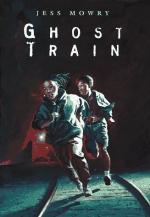|
This section contains 317 words (approx. 2 pages at 300 words per page) |

|
Mowry is very interested in giving voice to the concerns of the young people of Oakland, trying to call society's attention to their lives. Thus, his fiction up to this novel has always included issues of poverty, education, and race. Ghost Train deals with these issues, but the mystery of the ghost train holds center stage, with the social issues providing background and enriching the experiences of Remi and Niya.
Concerned as he is with depicting his characters' lives honestly, he presents their views, language, and behavior realistically—an honored tradition in American literature dating back to the days of Mark Twain's Adventures of Huckleberry Finn (1884; please see separate entry). Some of this realism may be discomforting, although familiar to young audiences. For instance, Remi and Niya quickly develop a physical interest in each other, and they talk frankly about breasts, periods, and Remi's still...
|
This section contains 317 words (approx. 2 pages at 300 words per page) |

|




